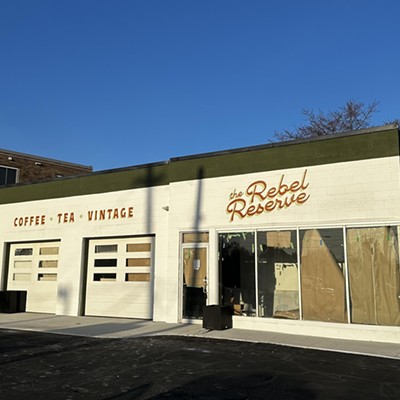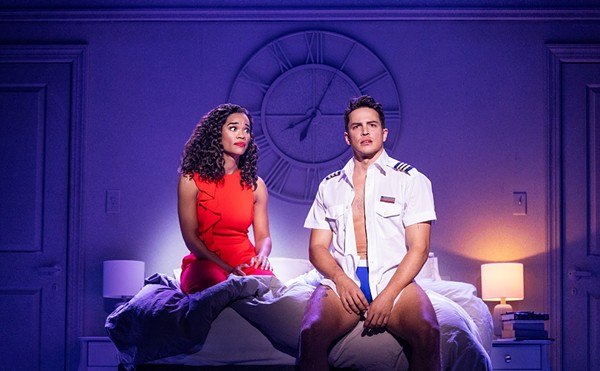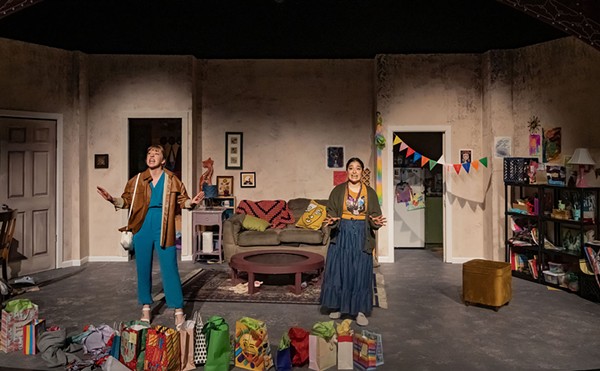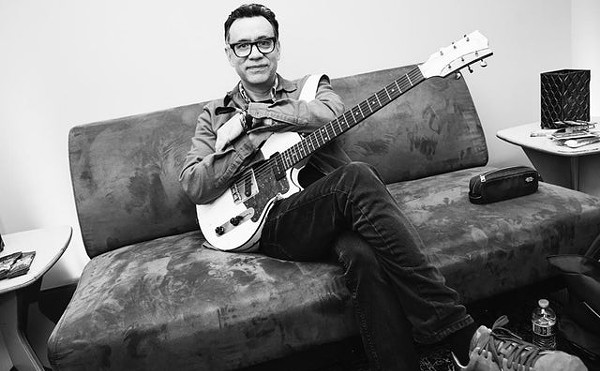Martin Luther, founder of the Protestant church, had a lot of interesting things to say about music. During a recent conversation about Apollo's Fire's upcoming program, Praetorius Christmas Vespers, music director Jeannette Sorrell recalled that the nailer of the 95 Theses once said, "Music is a precious gift of God. When I hear music, joy bubbles up inside me. Anyone who doesn't respond to this gift is a clod and not fit to be called a man."
When a theologian uses the word "clod," it's worth investigation. According to music scholar Paul Nettl, Luther went on to say, "He should rather listen to the donkey braying of the [Gregorian] chorale or the barking of dogs and pigs, than to such music."
Just as Luther's 95 Theses launched a new kind of faith, new ideas about the structure of music and the way it was used in church service were percolating in the 16th century and would launch a new era in sound. And that's exactly where Sorrell and Apollo's Fire find themselves this holiday season with Praetorius Christmas Vespers.
The son of a Lutheran pastor who was one of Martin Luther's first disciples, church organist and composer Michael Praetorius was, says Sorrell, "on the cusp between the Renaissance and the Baroque." That put the prolific composer of hymns on the cutting edge of implementing both polyphony — more than one melodic line sounding at one time — and broader participation by congregations in church music.
"Martin Luther believed really strongly that music should have a prominent place in church service and that all the people should be involved," says Sorrell. "That's a very dramatic contrast from the Catholic church before that. Church music prior to Martin Luther and Michael Praetorius was primarily Gregorian chant. So Praetorius was actively bringing to life Luther's ideas about democratic nature of service and putting that to play in his music."
That meant that there were parts for professional soloists, but also simpler roles for children and amateur singers in the congregation. Sorrell's program, a collection of Praetorius' hymns, has some of that vocal diversity (though leaving out the amateur part). Her acclaimed soloists include sopranos Kiera Duffy, Sandra Simon and Nell Snaidas, alto Kirsten Solleck, tenors Scott Mello and Marc Molomot, and bass Paul Shipper. Apollo's Singers will lend choral support, with youthful energy from the orchestra's youth choir, Apollo's Musettes.
Luther's belief that the church should be demystified included the idea that services should be in the language of the people. Consequently, Praetorius wrote his hymns mostly in German, though he did use some Latin. In keeping with that intention, Sorrell will put the hymns into the language of Clevelanders, using English translations — though some verses will be left in their original German and Latin.
As far as instrumentation, Sorrell says Praetorius left things a little bit vague, probably in part because he had to make do with available musicians. He'd note, for example, "This passage can be given to trombone if you have one; otherwise, gamba will do." In one of his more amusing suggestions, she says, he recommended "to place the trumpets far away or even outside the church."
"His trumpet players were town criers, paid in barrels of wine," says Sorrell. "We pay our trumpet players in money, so I think we'll have them inside."
She'll take advantage of Praetorius' instrumental open-mindedness to show off the ensemble's early musical resources, including three giraffe-like bass lutes, known as theorbos, as well as the baroque precursor of the trombone, the sackbut.
The program Sorrell has put together wasn't assembled by the composer as a single service. It's a collection of his hymns that would have been used during a seasonal vespers service at the time. Sorrell says she chose her favorites.
"Anyone who comes with a Protestant background will recognize several melodies," she says.











